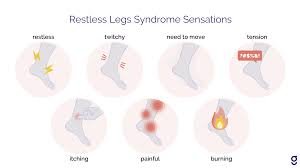While Phentermine (Adipex-P) can significantly aid in weight loss, making complementary lifestyle changes is essential for long-term success. Here’s how to create a supportive environment for your weight loss journey. Setting realistic goals and maintaining a supportive environment can also boost motivation and help achieve sustainable weight loss outcomes.
Describe phentermine.
Similar to amphetamines in their action, phentermine is a sympathomimetic amine. It affects specific neurotransmitters in the brain that aid in appetite regulation by stimulating the central nervous system. This facilitates people’s ability to follow a diet low in calories, which is essential for successful weight loss.
People with a body mass index (BMI) of 30 or higher, or a BMI of 27 or higher who have health conditions connected to their weight, such as type 2 diabetes or hypertension, are usually prescribed phentermine. It is often advised for individuals who have not found success with diet and exercise alone, but it is not meant for everyone.
How Functions Phentermine?
Essentially, phentermine functions by:
Repressing Hunger:
Phentermine decreases sensations of hunger by altering brain neurotransmitters, which enables people to eat fewer calories.
Increasing Energy:
Some users claim to have more energy, which may motivate them to engage in greater physical activity, which is essential for any weight loss program to be successful.
Improving Metabolism:
Phentermine may be able to raise metabolic rate, which would result in increased daily caloric expenditure.
Even though it works well, Phentermine should only be used in conjunction with a complete weight-management program that includes frequent exercise and dietary adjustments.
Benefits of Medication
When used as prescribed, phentermine has the following advantages:
Short-Term Weight Loss:
During the first few weeks of treatment, a lot of people lose a significant amount of weight. This may inspire you to start losing weight right away.
Better Health Indicators:
Reducing weight can help people with obesity-related health problems manage their blood pressure, cholesterol, and blood sugar.
Enhanced Motivation:
People may be more inclined to make healthier lifestyle decisions as a result of the first results that Phentermine frequently brings.
Accessibility:
Phentermine is available with a prescription and may be a good choice for people who don’t have access to more involved weight-loss plans or techniques.
Possible Dangers and Adverse Reactions
Despite its potential for weight loss, phentermine is not risk-free. Typical adverse effects include the following:
raised cardiac Rate:
People who already have cardiac problems may find that taking phentermine causes palpitations or a raised heart rate, which is problematic.
Insomnia:
Some users have trouble falling asleep as a result of the stimulant effects, which can be detrimental to their general health and attempts to lose weight.
Dry Mouth:
Although it might be irritating, dry mouth is usually treatable and is a common side effect reported by patients.
Constipation:
A lower calorie intake may make changes in digestive habits worse. Constipation is one of these patterns.
Mood changes:
While using Phentermine, some people may suffer anxiety, irritability, or mood changes.
Heart issues, pulmonary hypertension, and elevated blood pressure are examples of more severe adverse effects. Phentermine should not be taken by anyone with a history of substance misuse, hyperthyroidism, or cardiovascular disease. Before beginning therapy, it is important to go over your whole medical history with your healthcare professional.
Length of Use
It is usually advised to take phentermine for a few weeks to three months, depending on the situation. This is due to the fact that extended use can build reliance or tolerance, and its effectiveness tends to wane with time. In the event that weight loss objectives are not reached within the allotted time, healthcare professionals will continuously monitor progress and might suggest other tactics.
Changes in Lifestyle
While phentermine can help people lose weight, making healthy lifestyle changes is necessary to guarantee long-term success. Among the crucial tactics are:
A well-rounded diet Prioritize eating a balanced, calorie-restricted diet full of whole grains, fruits, vegetables, lean meats, and healthy fats. This is beneficial for both weight loss and general wellness.
Frequent Workout: M
ake sure your plan includes both strength-training and cardiovascular workouts. Health officials advise engaging in at least 150 minutes of moderate-intensity exercise every week.
Behavioral Adjustments:
Manage the things that make you eat emotionally, eat mindfully, and create good coping mechanisms for stress and cravings. Group therapy or support services can offer more direction.
Creating Reasonable Objectives:
Try to lose weight gradually; losing one to two pounds a week is usually thought to be a healthy and manageable pace. Having realistic goals can boost confidence and motivation.
Observation and Succession
Maintaining regular follow-up sessions with your physician is essential when undergoing Phentermine medication. These appointments enable tracking of weight reduction progress, evaluation of side effects, and necessary modifications to the treatment plan. To further assist you in succeeding, your healthcare physician may also provide further tools and resources.
In summary
When used as directed by a healthcare provider and in the right dosage, phentermine (Adipex-P) can be a useful weight-loss aid. To maximize its efficacy and guarantee a great weight reduction journey, it is imperative to comprehend its advantages, hazards, and the significance of lifestyle modifications. See your doctor to find out if Phentermine is the best option for you if you’re thinking about using it in your weight loss plan. Recall that maintaining long-term weight loss is a complex process that calls for support from others and a dedication to healthier habits in addition to medication.
















Leave a Reply